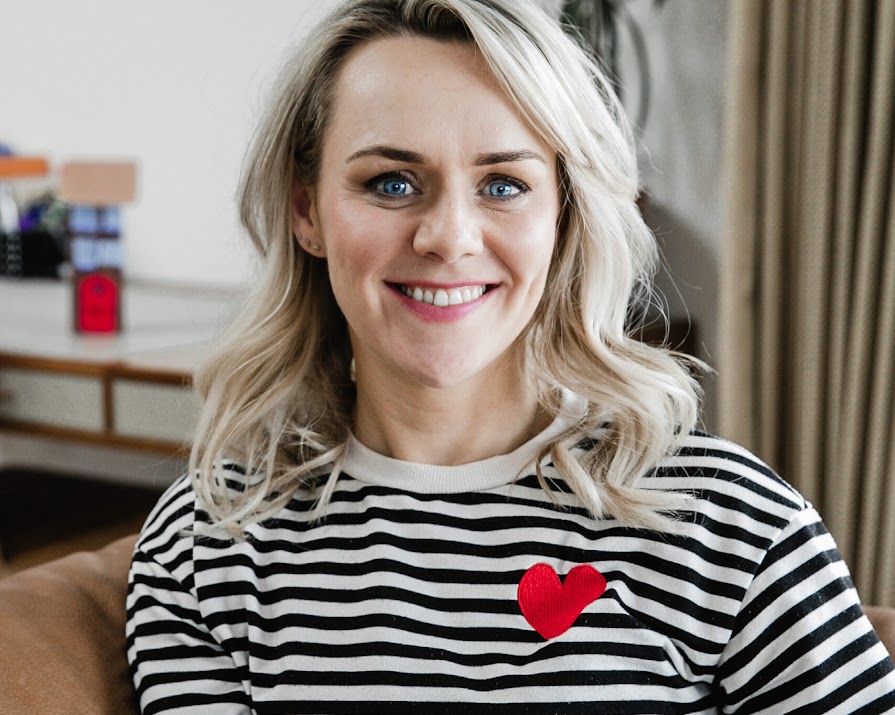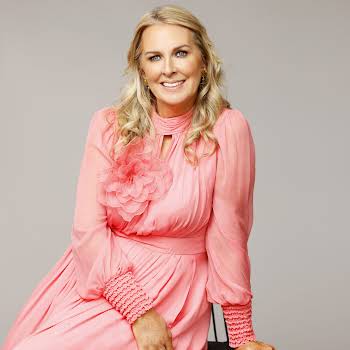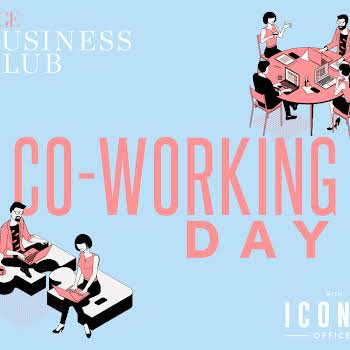
‘Well-being is far more than a well-written policy and bananas in the canteen’
By Sinead Brady
18th Apr 2023
18th Apr 2023
Sinead Brady
Though many of us know our well-being is key to the foundation to success in all areas of our lives, it can be difficult to prioritise it, especially in work. In an exclusive extract from her new book, Total Reset, career psychologist Sinead Brady advises us how to do it and why MacGyver (remember the TV series?!) has a lot to answer for...
I was standing at the end of my kitchen island, being grilled by a small and relentless interrogator:
‘Who do you love, Mammy?’
‘Well, I love you, your sisters, your dad.’ (Our fourth baby was not born at this point.)
‘Anyone else?’
‘Well, yes, our family and friends.’
Not satisfied with large groups labelled broadly, she demanded more detail:
‘But who do you mean?’
I proceeded to expertly name 50 or so people, starting with brothers and sisters, along with their partners and children, followed by both sets of grandparents. Next I moved on to our friends, before concluding with our children’s friends, confident that the list was complete.
Still unsatisfied, my hazel-eyed, pig-tailed inquisitor said, ‘You forgot someone. Who did you forget?’ It was the end of a long day at home with two small kids and a 12-week-old baby. I was getting ready to speak at an event that required an overnight stay. Our baby and my husband were coming along as I was exclusively breastfeeding.
‘No,’ I said, my tone betraying that my patience with this line of questioning was reaching near breaking point, ‘I have not.’ As far as I was concerned, I had covered everyone bar the postman. But according to my five-year-old, someone was missing.
‘You have!’ she insisted.
‘Who?’ I asked.
With a toothless smile and a leg hug, she announced, ‘What about you, Mammy? You forgot the most important person in the world – you never said you love yourself.’
I was floored. I did forget myself. I forgot to say, ‘I love me.’ I had in fact thought of the postman before I considered putting myself on that list.
And I blame MacGyver!
The MacGyver Fallacy
Do you remember the TV show MacGyver? The 1980s action thriller following the life of a secret agent who, armed with infinite scientific knowledge, a Swiss army knife and duct tape, saves the world, repeatedly? Fuelled by a strong sense of social justice, he achieved incredible feats seemingly without ever sleeping, eating or drinking.
We watched as, at the end of a long day, the closing scene usually, he would head off into the sunset, alone, with the flames of success glowing behind. MacGyver was 100 per cent committed to his job for the Phoenix Foundation. Over the years the show aired, we learned little about his life, relationships or interests.
He was what we might now call a workaholic, earnest in his devotion to his work, and only his work. This is what I refer to as the MacGyver Fallacy.
Lost in the doing – the role of technology
Technology has played its part in this perfect storm. Compared even to just 15 years ago we each have seamless access to devices that, in theory, help us to achieve more in less time, to be efficient and, overall, more productive. These machines with unique operating systems are designed, developed and built to run at capacity 24/7.
As humans, we need rest, sleep and downtime to function; without it we crash and become unwell.
Yes, they might need to be charged or updated, but once you do that, apart from the odd glitch, they tend to operate optimally. In turn, we are provided with non-stop access to information, each other and the wider world.
We are not programmed to live, work or operate this way. As humans, we need rest, sleep and downtime to function; without it we crash and become unwell. So what is well-being, and how can we get some? In its simplest form, well-being is feeling well enough to experience health, happiness and prosperity as you live your life. More specifically, it is the ability to feel good and function effectively, as you navigate the highs and lows of work and life consistently. It includes good mental health, high life satisfaction, a sense of meaning and purpose and the ability to manage stress. This doesn’t mean that you must exist in a constant state of happiness – that is impossible and unhealthy. The aim is to be well enough to experience feelings, to feel happy and content 80 per cent of the time, and to be able to cope with the 20 per cent of the time that life is challenging.
When we feel physically, emotionally, socially and professionally well, we engage in a mutually enhancing cycle in which we:
- Have more energy
- Feel connected to ourselves and others
- Have more focus and motivation
- Are more productive at work.
It is possible to increase your well-being by developing a few simple, practical and science-backed techniques. First off, you must make your well-being a priority. While this may feel and sound counter-intuitive, remember the oxygen mask on the plane analogy: unless you help yourself first, you will not be able to help anyone else, even the most important people in your life. Deciding what parts of your well-being are most important, and where you are going to focus your time and energy, is vital. Your non-negotiables are the clear, well-defined themes upon which your well-being exists.
We feel busier than ever, and most of us are in pursuit of work–life balance, where work and life sit in perfect harmony.
Yet somehow, as more and more time was freed up by technology, we have become more and more time-poor at worst, or time-stretched at best. We feel busier than ever, and most of us are in pursuit of work–life balance, where work and life sit in perfect harmony. But frequently that quest feels like a journey to find the leprechaun with the pot of gold at the end of the rainbow – each time you appear to be almost there, the elusive end of the rainbow shifts and, as if by magic, you never reach it.
The graduate who quit before he started
Not long ago I was chatting to a recent graduate who worked for a global law firm, who explained that he was leaving for a similar role in a smaller organisation, and doing so for significantly less pay. In fact, to make it work, he was moving back into his family home. When I asked why, he told me this story: ‘I was leaving work about two Fridays ago around 6pm. The office was still busy, but I had my work done and knock-off time is 5.30, so I decided to go home. On my way out, I bumped into my boss, who said, “See you tomorrow.” I said, “Not tomorrow, mate, it’s Saturday.” Then he walked alongside me for a few steps on the footpath beside the canal and told me, “If you want to make it here you really need to show an interest and be more visible after hours and on weekends. This is your second week not coming in on Saturday and leaving on Friday evening, and you know these things are noticed. It’s good fun here on the weekends. It’s laid back and we kinda enjoy it. The days are short; if you’re in around ten, you get home before four, unless it’s a very busy week.’
That was all he needed to hear. On the way home that evening, he made the decision to leave. His boss, in his mid-40s, was a lovely man and a brilliant professional who showed great kindness to his team. He was also overweight, and had spent time in hospital the previous year with a TIA (a transient ischaemic attack, or what is often called a ‘ministroke’). He was a dad of three who typically worked a 70-hour week.
People are treated as resources, counted in numbers and are considered dispensable if their operating system isn’t able to fully commit to the role.
My graduate friend went on to say, ‘I really don’t know when he sees his kids, and we heard on the grapevine that his marriage is in trouble. I looked at him and saw a future I didn’t like, so I decided to make the change now, rather than wait until I was so dependent on the money that I couldn’t leave.’
That job was a greedy job, in a greedy organisation that lives and breathes the MacGyver Fallacy. People are treated as resources, counted in numbers and are considered dispensable if their operating system isn’t able to fully commit to the role. That commitment is shown through availability for work all day, every day.
Wellness first – every time
The reality is that, if you want to be productive, you must first be well. In an always on and 100 per cent productivity at all costs culture, it can be hard to justify taking a few minutes to yourself during the workday. In fact, many of us struggle to take a full lunch hour, often having lunch at the desk. Working at 100 per cent capacity 100 per cent of the time is both unsustainable and impossible. Humans can’t focus effectively for eight hours straight.
If you want to achieve peak performance in any aspect of life, work or your career, your physical and mental well-being must be your first priority. It is not the role of one single individual to shift this narrative, it is in our power as a collective that we have the capacity to move the dial. And, as we do, it is incumbent upon organisations, organisational leaders and governments to put policies and procedures in place that give us the permission to blend work and life in a way that prevents sickness and lack of engagement.
Well-being is far more than a well-written policy and bananas in the canteen, it is a lived practice that filters from the top down. When people in a position of power and influence within an organisation don’t practice what they preach, and when an organisation, through its stakeholders, holds people accountable for only maximising profit, people become numbers, and when that happens people get sick, and they leave the business.

‘Total Reset’ by Sinéad Brady is published by HarperCollins Ireland, priced £14.99.
























